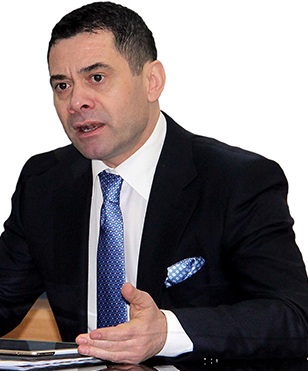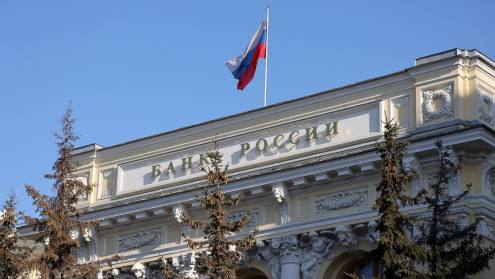Q: What are the key priorities of your fiscal policy? What impact are these policies having on Albania’s economy?
A: The government’s priorities have been fiscal consolidation and improving the management of public expenditure; regulatory and institutional reforms; and the improvement of the social protection system. Our proposed reforms are designed to address any constraints on economic growth and to boost competitiveness. These will enable Albania to compete with the rest of the world and to take part effectively in regional and global value chains.
The economic growth rate of Albania has continued to accelerate since the global financial crisis hit. It peaked at 6.5% in 2005 but dropped to 1% in 2013, following the implementation of countercyclical measures. However, it rose to 3.37% in 2016 and expanded 3.87% during the first nine months of 2017.
The economy is expected to expand by 4.2% in 2018, 4.3% in 2019, and 4.4% in 2020. This recovery has been supported by a pick-up in investment and trade. Better business and consumer confidence has also helped.
The aim of the fiscal consolidation is to bring down the debt-to-gross domestic product [GDP] ratio; it started its downward trajectory in 2016. Public debt is forecast to fall to 68.7% of GDP in 2018, 66.4% in 2019, and 63.5% in 2020. This has been a difficult process but a necessary one.
The reforms in the energy and transport sectors are crucial for sustainable economic growth, improving competitiveness and supporting the reduction of transport and connectivity costs for Albanian products.
Q: How content are you with the health of Albania's banking sector?
A: The banks are well structured and mostly foreign owned. The Bank of Albania has done a great job bringing the non-performing loan [NPL] rate down to about 13% from a high of 25%. It should be way under 10% some time next year.
There was a credit boom between 2002 and 2007, which created a number of problems. The economy is still growing at about 4% despite the limited lending to the corporate sector. I believe that – given the much lower NPL rate – banks will start lending to the corporate sector again. I think that the deregulation reforms that we are carrying out will make the business environment much more positive.
Opening negotiations for full membership of the EU would be a really big event for us. I think all these developments would improve bank lending.
The Bank of Albania has done a great job bringing the NPL rate down to about 13% from a high of 25%
Q: You mention the EU – how important is that relationship for Albania?
A: EU integration is crucial to us. Recent history shows that the EU has developed as the world’s most powerful ‘convergence machine’, making poor countries rich in less than a generation. This is an inspiration for Albania and the western Balkans generally, given our strategic location as a gateway to and transit corridor for the EU. For small economies such as Albania, trade and transport integration are the most direct pathway to prosperity.
Albania is a European country in all senses. The past, present and future history of Albania is inextricably linked to the countries of the EU and greater economic integration among the western Balkan countries and between the western Balkans and the EU is an important step.
The power of economic integration has worked across the world. Countries that have reached high-income status have done so through connecting to global markets through trade, transport and investment.
In order to join the euro we need a strong and competitive financial sector, stable exchange rates, inflation to be under control, and an independent monetary policy. Albania has made a great effort towards creating a well-structured market economy capable of coping with the competitive pressures and the market forces once it joins the EU.
Q: How important is foreign direct investment [FDI] for the Albanian economy and where do you see the country’s main potential?
A: The country has had a strong FDI performance for the past four years in a row. In 2016, FDI in Albania reached €982m, or about 8.5% [of] GDP. For the period between June and September 2017, it reached €676m.
Albania has strong growth potential; our exports have been expanding for the past five years and trade with many EU countries has been surging. We have great human capital; some 50% of the population is aged under 35 and the average wage is one of the most competitive in the region.












